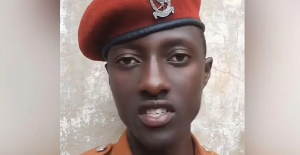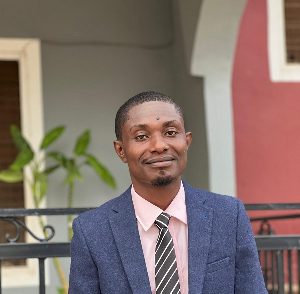Although the political culture of democracy appears to be taking a firm hold on Ghana, hardly the same could be said about the imperative rule of law. On May 30, 2007, for instance, a special report appeared in the Accra Daily Mail in which narrative a man who allegedly killed another, in the presence of witnesses, was allowed to go scot-free, as it were.
If, indeed, the rule of law had been effectively and efficiently working, the alleged killer would have been promptly accorded a citizen’s arrest and turned over to the local police station – or precinct – for logical investigation and prosecution, as the garnered evidence in the case might have determined.
Here in the United States, a citizen’s arrest is that part of the celebrated Bill of Rights which enjoins each and every citizen in the fifty states of the Union to promptly intervene in situations of a flagrant breach of public order or human and civil rights in the immediate absence of a law-enforcement agent. In sum, what the preceding means is that witnesses to the murder of Mr. Sulley (the Accra Daily Mail report did not provide the alleged victim’s surname) ought to have promptly arrested the assailant, or alleged murderer, Mr. Dan Gurma, until the police arrived at the crime scene and took the culprit in.
Indeed, in a functioning democracy, such as the United States, the alleged failure of those who witnessed Mr. Gurman’s alleged crime of homicide to promptly arrest the suspect and or report him to the police, would automatically have rendered these “irresponsible” witnesses as “accessories to a crime.” In effect, these eyewitnesses would have been treated before a legitimate court of law almost as if each and every one of them had directly participated in the brutal murder of Mr. Sulley.
Alas, in our Ghanaian narrative, at least as retailed by the Accra Daily Mail, both the eyewitnesses and even the aggrieved family of the deceased chose the proverbial primrose path of the peacock. This is how the Accra Daily Mail correspondent, inter alia, cast matters: Characteristic of Islamic society [actually Islamic culture, since Ghana has only a minor Muslim community], the family of the deceased sought to have their beloved [promptly] buried[,] instead of subjecting the corpse to a post-mortem examination to isolate [determine?] a deliberate intention to kill or otherwise. He was buried with all the possible evidence gone with the corpse” (5/30/07).
It goes without saying, here, that the mere burial of Mr. Sulley did not automatically cause the total destruction of criminal evidence, since in a court of law, the corroborative evidence of eyewitness accounts is almost as significant as the primary evidence itself. In other words, if it can be forensically established by eyewitness accounts that, indeed, the crime of homicide – or murder – was committed against Mr. Sulley, then, of course, the court could promptly proceed to prosecute Mr. Dan Gurma, the alleged perpetrator of the homicide.
Of course, in a situation where the suspect can be proven to have so acted in self-defense, depending on the degree, or extent, of the danger involved, Mr. Gurma, for example, could ultimately be exonerated. The preceding notwithstanding, the determination of whether Mr. Gurma was, indeed, guilty – or culpable – of criminal homicide remains the especial preserve of a legitimate court of law.
Equally significant, of course, is the fact that advanced forensic technology can ensure that even though the alleged victim of homicide, Mr. Sulley, could have been buried for even ten years or half-a-century, nonetheless, the cause of the victim’s death could still be clearly and fairly accurately established, particularly in situations where DNA technology is appropriated.
In the Accra Daily Mail narrative, it appears that two significant factors militated against the imperative and prompt arrest and possible prosecution of Mr. Dan Gurman, the alleged suspect of homicide. One, is the fact that both participants in the violent confrontation, that reportedly led to Mr. Sulley’s death, were known Black-Market (I actually prefer to term it as White-Market) operatives. And since underground currency-trading is officially punishable by a court of law, the eyewitnesses likely thought it wiser to maintain a state of passivity, in order not to attract the apparently unsavory attention of law-enforcement officials.
The second factor inheres in the alleged fact that these Black-Marketeers are known to be Nigerian nationals and may, indeed, be illegally resident in Ghana, a country which has been experiencing a high spate of homicide in recent months and thus is unlikely to envisage Mr. Gurman’s alleged crime with leniency.
Still, it is imperative that the Ghana Police Force promptly step in to investigate this Accra Daily Mail report, with or without the direct and active cooperation of the family and relatives of the deceased. For it is the human right of the deceased that has been violated and, in the solemn realm of international law, Mr. Sulley’s human right to peaceful coexistence with his fellow human beings supersedes all the other civic and cultural factors surrounding this case.

Views expressed by the author(s) do not necessarily reflect those of GhanaHomePage.














